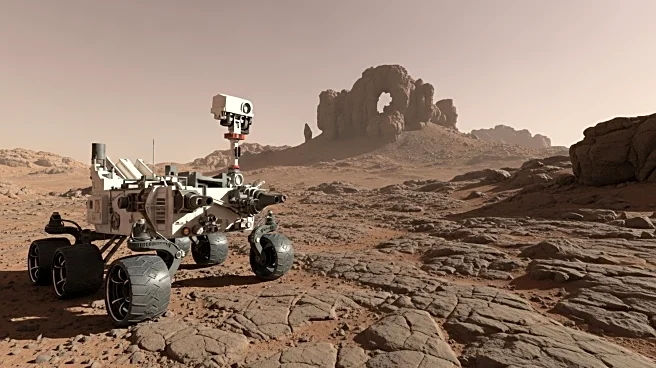What is the story about?
What's Happening?
NASA's Mars rover Perseverance has discovered potential biosignatures in samples collected from the Jezero Crater, a site believed to have once been a riverbed. The rover collected samples from a rock named 'Cheyava Falls,' which contained features resembling seeds and pollen. These features, according to NASA associate administrator Nick Fox, could be indicative of biological activity. However, further testing is required to confirm the presence of life. The samples have been stored for future analysis, and the discovery has been described as the closest evidence yet of life on Mars.
Why It's Important?
The discovery of potential biosignatures on Mars is significant as it could provide insights into the possibility of life beyond Earth. If confirmed, it would be a groundbreaking discovery, altering our understanding of life's existence in the universe. This finding could influence future Mars missions and the search for extraterrestrial life, potentially leading to increased funding and interest in space exploration. The implications extend to scientific, philosophical, and societal realms, as it challenges our perception of life and its uniqueness to Earth.
What's Next?
The samples collected by Perseverance will undergo rigorous testing to determine their origin. NASA plans to bring these samples back to Earth for detailed analysis in future missions. The ongoing research will focus on understanding the conditions that might have supported life on Mars. Additionally, this discovery may prompt further exploration of Mars and other celestial bodies, as scientists seek to uncover more evidence of life beyond Earth.















